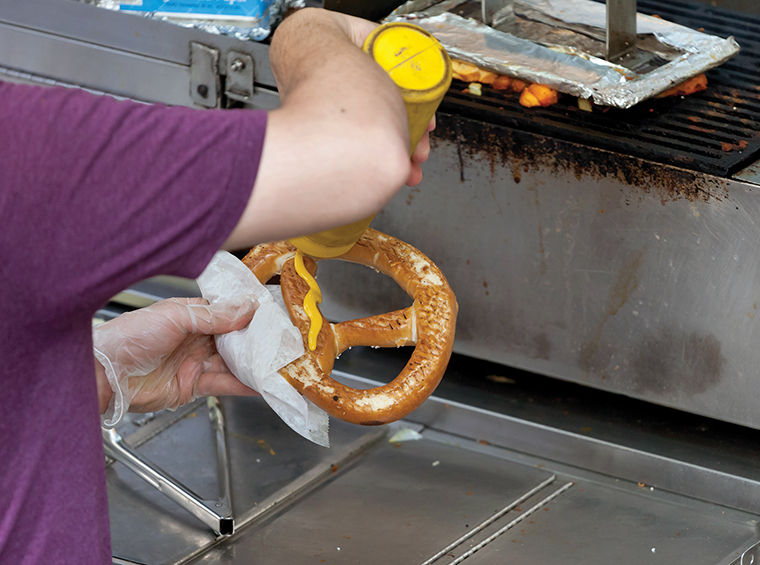Aldermen to limit food cart operations
44th Ward Alderman Tom Tunney passed an ordinance that restricts where food carts can operate.
November 9, 2015
Coming on the heels of the City Council’s legalization of food carts on Sept.24, Alderman Brendan Reilly (42nd Ward) and Alderman Tom Tunney (44th Ward) have succeeded in implementing restrictions on where food cart vendors can operate. According to Hilary Gowins, managing editor for the Illinois Policy Institute, Tunney and Reilly cite public safety as a reason to restrict food cart operations in their wards.
Hours after the City Council’s Sept. 24 action, Reilly and Tunney introduced opt-out amendments to the ordinance that would allow them to ban food carts in high traffic areas of their wards, according to a Crain’s Chicago Business article of the same date.
The City Council license committee approved the ordinances on Oct. 27, according to a Chicago Sun-Times article appearing the same day.
“It’s really unfortunate that so soon after giving people the freedom to operate their businesses, the aldermen already want to take back what they are able to do,” Gowins said.
Both Reilly and Tunney were unavailable for comment, as of press time. There are 1,500 food cart vendors in Chicago, and starting Nov. 13, food cart owners can apply for licenses, according to Gowins.
Out of the 50 largest cities in the nation, Chicago was one of two that refused to license food carts, according to Stacy Massey, community relations manager for the Institute for Justice Clinic on Entrepreneurship. Before legalization, food cart vendors would have to worry about being ticketed and fined by the police, according to Massey.
Gowins said it is too early to determine the impact of legalizing food carts, but research released by Illinois Policy Institute suggests it is promising because of the jobs it will create.
The report was released by Michael Lucci and Gowins Aug. 21, outlining the benefits of allowing food carts to operate in the city, suggesting they could create 6,000 new jobs in Chicago. It also said more than 1,500 food cart vendors in Chicago serve around 50,000 meals a day to consumers.
“We have every reason to believe that the industry is going to boom here in Chicago,” Gowins said.
Teresa Vergra-Miranda, a Brighton Park resident, said she eats at food carts offering Mexican street food about twice a week.
“My parents are from Mexico, and we eat at [food carts] after church because it reminds them of Mexico—it reminds us of home,” Vergra-Miranda said.
Vergra-Miranda also said she thinks obstruction of streets by food carts will not be a public safety concern.
“There is enough sidewalk for everyone,” Vergra-Miranda said.
Chassity Santiago, a server at Salt & Pepper Diner in Wrigleyville, said she does not think food carts threaten her restaurant’s business because there are already many other choices in the area.
“The food in this neighborhood [Wrigleyville ]is so diverse.… I don’t think it would have much of an impact,” Santiago said.
Santiago said she agrees food carts should be restricted from certain locations on crowded game days in Wrigleyville to avoid worsening traffic.
“The ordinance puts food carts and brick-and-mortar restaurants on an even playing field,” Gowins said. “There is plenty of business for both to survive and thrive.”








